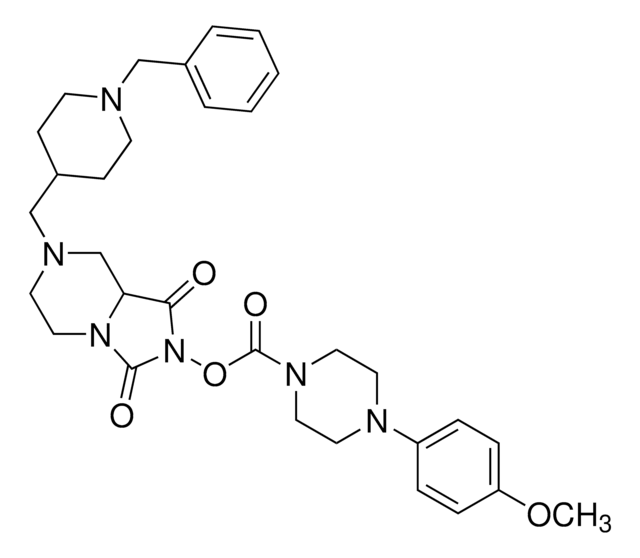ABE1391
Anti-Brd4 Antibody
serum, from rabbit
Sinónimos:
Bromodomain-containing protein 4, Mitotic chromosome-associated protein, MCAP, Brd4
About This Item
Productos recomendados
biological source
rabbit
Quality Level
antibody form
serum
antibody product type
primary antibodies
clone
polyclonal
species reactivity
human
species reactivity (predicted by homology)
mouse
technique(s)
ChIP: suitable
immunocytochemistry: suitable
western blot: suitable
NCBI accession no.
UniProt accession no.
shipped in
dry ice
target post-translational modification
unmodified
Gene Information
mouse ... Brd4(57261)
General description
Specificity
Immunogen
Application
Epigenetics & Nuclear Function
Epigenetics & Nuclear Function
Chromatin Biology
Histones
Chromatin Immunoprecipitation (ChIP): A representative lot of this antibody was reported to work in ChIP using chromatin from NIH3T3 cells. See Mochizuki, K., et al. (2008) and Anup, D., et al. (2009).
Immunocytochemistry: A representative lot of this antibody was reported to work in ICC. See Anup, D., et al. (2000) and Anup, D., et al. (2009).
Quality
Western Blotting Analysis: 1:1,000 dilution of this antibody detected Brd4 in 10 µg of HEK293 cell lysate.
Target description
This antibody primarily detects 100 kd short form of Brd4 and to lesser extent larger 180 kD form (see Alsarraj J., et al. (2013 for additional details on performance of this antibody).
Physical form
Storage and Stability
Handling Recommendations: Upon receipt and prior to removing the cap, centrifuge the vial and gently mix the solution. Aliquot into microcentrifuge tubes and store at -20°C. Avoid repeated freeze/thaw cycles, which may damage IgG and affect product performance.
Other Notes
Disclaimer
¿No encuentra el producto adecuado?
Pruebe nuestro Herramienta de selección de productos.
Optional
Storage Class
10 - Combustible liquids
wgk_germany
WGK 1
Certificados de análisis (COA)
Busque Certificados de análisis (COA) introduciendo el número de lote del producto. Los números de lote se encuentran en la etiqueta del producto después de las palabras «Lot» o «Batch»
¿Ya tiene este producto?
Encuentre la documentación para los productos que ha comprado recientemente en la Biblioteca de documentos.
Nuestro equipo de científicos tiene experiencia en todas las áreas de investigación: Ciencias de la vida, Ciencia de los materiales, Síntesis química, Cromatografía, Analítica y muchas otras.
Póngase en contacto con el Servicio técnico